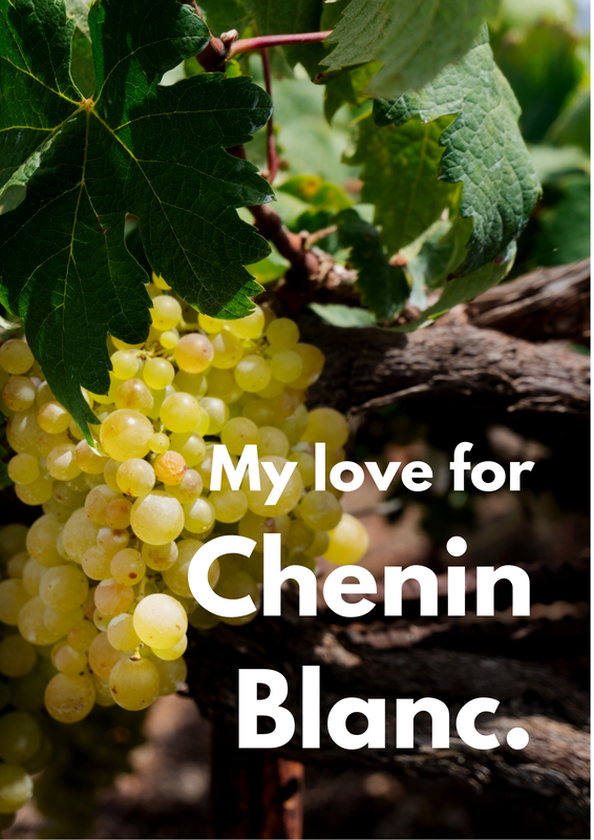|
What other grapes can be considered both established and subversive? Native and alternative? Classic yet contemporary? As comfortable growing in hot, arid climes as cooler, wetter ones? Capable of greatness in dryness and sweetness, even bubbling? None can to the extent Chenin Blanc can. Now I'll declare something of an interest from the outset. I arrived at a love for Chenin via a long relationship with South Africa as a country and subsequently as a source of wine. I will perhaps always see Chenin (or Steen) through this lens as it is the lens I know best. This isn't itself a bad thing because while the grape is not native to South Africa, more of it is grown there than anywhere else in the world. And yet the excitement Chenin elicits runs much deeper and wider than the fact it is behind some of South Africa's most celebrated bottles. It is because when drinking Chenin, you can't help but feel part of a revolution. In its French homeland it was becoming forgotten. Plantings have been in decline for many years. In the UK, drinkers were hardly clamouring for the wines of Anjou, Saumur, Savennières and Vouvray Outside the redoubts of some quality specialist merchants, for much of the market these were yesterday's wines, like a lot of classics of regional France that once upon a time were go-to bottles in bistros and wine bars but have been unceremoniously pushed to the margins by an influx of wines from around the world. That is itself no bad thing of course and makes the UK perhaps the most diversely thrilling place to drink wine in the world, and yet something is lost in the process. Now there's a groundswell of electricity around the wines of the Loire, largely driven by the natural wine movement but also an urge to drink lighter wines of lower alcohol, more structure and finesse. Vouvray might, just might, be cool again. There is a neo-revisionist energy around French Chenin. And let's not forget its role in Crémant de Limoux, an affordable Champagne alternative that has been increasingly talked up in recent years. Look farther afield to the New World and the revolutionary spirit continues. Historically there's always been a lot of Chenin Blanc in California but even more so than in South Africa it was not considered a great variety. You blended bulk wine with it and that's about it. And yet in the last couple of years I have drunk extraordinarily ambitious, delicious Chenin from smaller producers such as Broc Cellars and Maître de Chai (their Kierkegaard Chenin Blanc is glorious), dare I say wines that have more than a nod to the finest styles coming out of South Africa. Many more smaller US producers besides are experimenting with Chenin as a grape that's adaptable but also seen as alternative. It makes people sit up and take notice in a way that yet another Chardonnay simply doesn't, but as a classic French variety has a reassurance factor that genuine oddities don't. The same is happening in Australia, where according to Robinson et al, "for long it was an ingredient in the popular branded wine once known as Houghton's White Burgundy". Now there's awesome, sometimes pretty edgy Chenin coming out of places as diverse as Swan District in Western Australia (like Vino Volta), or poles-apart Clare Valley (such as our very own Sigurd), Adelaide Hills and McLaren Vale in South Australia (the latter two the source of no less than four different Chenin interpretations by Aphelion's Rob Mack). All this is further testament to Chenin's extraordinary adaptability. Even where Chenin is a very minor player it is beginning to turn heads in a way most other varieties can't match. Argentina has a relatively large amount of it planted but it doesn't stick its head above the parapet very often. When it does, by the likes of Michelini and La Revancha, it can achieve stunning results, so much so that on evaluating Michelini I Mufatto's second release of their Propósitos Chenin Blanc (2017 vintage) this year, Tim Atkin MW declared, "it makes you wonder why people don't plant more Chenin Blanc in Argentina". Quite! Only last night during a Zoom wine tasting with Loveblock founder Erica Crawford tuning in from New Zealand, she spoke of their plans to continue experimenting with Chenin in their Awatere Valley vineyards because of its adaptability but also its appeal as a quality variety that's not Sauvignon Blanc but can be simultaneously classic and yet subversive. Only James Millton in Gisborne has really made waves with Chenin Blanc so far in that country but I would bet my bottom Kiwi dollar he's soon to be just the first of many. Chenin Blanc truly is extraordinary. This is an ancient variety first documented in Anjou in 1496; a grape that is the bedrock for such famous, classic French wines like Vouvray and Savennières; a grape that can be appreciated in luscious forms such as Coteaux du Layon, excellent sparkling wines such as Crémant de Limoux, or dry, minerally, honeyed, tense whites. And yet at the same time it is a genuinely modern, electrifying variety at the tip of the sword for a new generation in the New World, and a vehicle for counter-cultural trends in the Old. So yes, I love Chenin Blanc, and this is why. by Nik Darlington
0 Comments
Leave a Reply. |
Archives
June 2023
Categories
All
|



